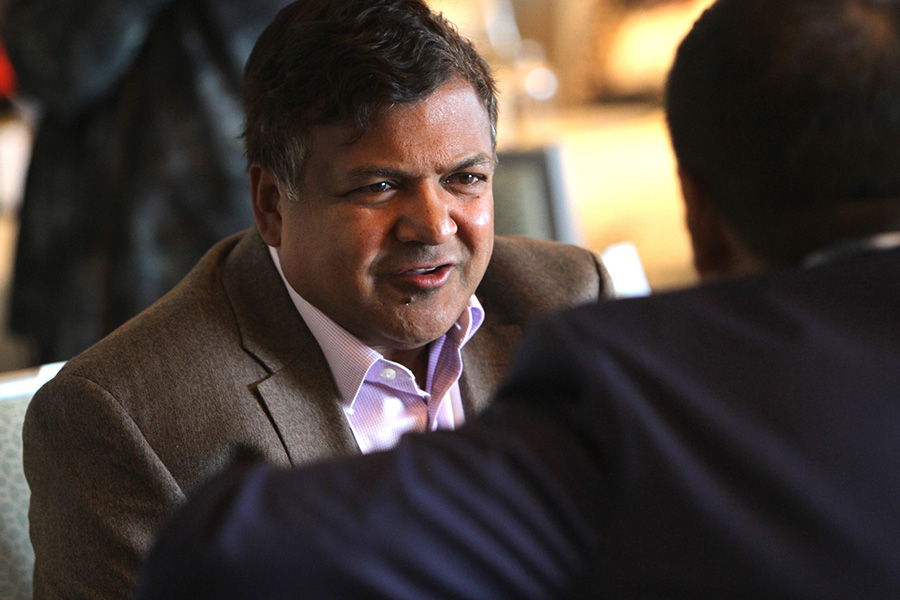Iora Health is at the forefront of a seismic shift toward value-based care and payment models. With 90 percent of its revenue fully at risk, CEO Rushika Fernandopulle, MD, says Iora has no desire to participate in the more traditional — and in many ways easier and safer — fee-for-service approach.
Iora started from scratch nearly a decade ago with a focus on value-based care and digital health. Today, the provider has nearly 50 practices in 12 different markets.
Health Evolution Editor-in-Chief Tom Sullivan spoke with Fernandopulle about the transition to value, what health care CEOs should understand about the iterations and impact Netflix has made, and what excites him most about the future.
Health Evolution: There’s a lot of talk about value-based care but as someone on the front lines what are you seeing outside Iora? What’s the reality check?
Fernandopulle: It’s still early. This is a huge complex industry and it won’t happen in 2-3 years. But we’re starting to see the wave changing, and it’s for a lot of reasons: CMS driving change, employers driving change, new entrants, a lot of those are pointing in the same direction. I think what people don’t get about disruption when you look at, say, Netflix, is that things were changing slowly — until they weren’t. We’re not there yet but we’re starting to approach a critical time of change.
Q: The Netflix impact on Blockbuster is something of a darling example because when the company started it was simply mailing DVDs. Novel at the time, but with the luxury of hindsight we can say now that original business model would not likely have lasted. Netflix had to evolve …
Fernandopulle: Netflix had one thing mildly interesting, DVDs. That was somewhat easier than going to Blockbuster. But when they started doing streaming it was considerably better than going to Blockbuster and that’s the turning point. There are so many people in health care thinking about filling hospital beds, doing MRIs, traditional services, but that’s not the business of health care anymore.
Health Evolution: What do you envision as a similar turning point to the business model in health care? The combination of value-based care with digital health tools and a focus on consumers? Or something else entirely?
Fernandopulle: Value-based care is a bit of a red herring, a means to an end. What will change is people designing new care models. At some point patients will vote with their feet — that and only that will drive transformative change.
Health Evolution: Following that, what in your view is not changing quickly enough?
Fernandopulle: A lot of things. Payment models. There’s still a lot of talk about value but I had a conversation with a health system CEO, a progressive one, after the last Health Evolution Summit and I asked what percent of their revenue is at risk? Three percent. That’s not really value-based care. It’s just one system, of course, but the real move to value-based care is a lot smaller than it should be or could be.
Health Evolution: So, what did Iora do? Since you have 90 percent of its revenue at risk, what did it take to get there?
Fernandopulle: At Iora Health, we’ve made a number of pivots, like any company. We started as direct primary care and in the beginning FFS wouldn’t pay for it. Then we asked patients to pay and it was clear that wouldn’t allow us to scale. So we moved to employers, then pivoted to Medicare Advantage plans. You have to be willing to ask: is there a better version of what we’re doing here?
Q: Which is not an uncommon question for startups and emerging companies to face multiple times as they grow. What are the risks in making so many pivots?
Fernandopulle: My biggest fear is that we end up regressing to the mean, doing what everyone else does. I think it’s just so easy as you get bigger and hire more people to start doing things the old way because everyone already knows the old way. We have to keep up that spirit of being daring, doing new things, being bold. If all we do is create another primary care practice we might as well not bother — but it gets harder as you scale.
Health Evolution: What excites you about the future?
Fernandopulle: A lot of what we talk about now, digital health, consumer centric care, value-based care, none of that’s new. What’s exiting is that we’re actually starting to do it and not just talk about it. Some of the bigger systems are starting to do it, forces from outside are doing it. There’s a lot capital behind it now.










